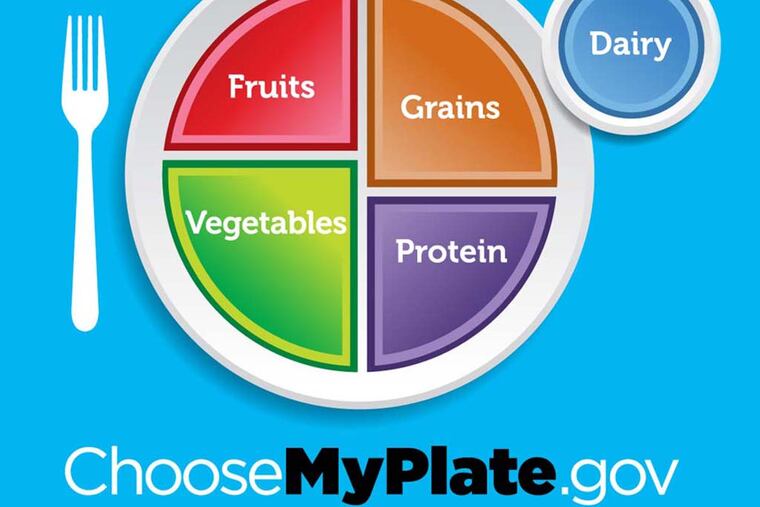Dietary guideline proposal revises what's on a healthful plate
NEW DIET guidelines: a death knell for meat eating? Headlines for February's long-awaited Dietary Guidelines Advisory Committee recommendations practically shouted as much.

NEW DIET guidelines: a death knell for meat eating? Headlines for February's long-awaited Dietary Guidelines Advisory Committee recommendations practically shouted as much.
And the meat industry seemed to agree: Barry Carpenter, president and CEO of the North American Meat Institute, quickly slammed the committee for a "flawed" report "generalizing about an entire category of foods," although that's exactly what the guidelines have done since back in the "Four Food Groups" days.
At issue is a shift in the overall favorability of flesh-based foods in the diet: When the guidelines were last revised, in 2010, they said that healthy eating "emphasizes . . . lean meats and poultry," while the new recommendations say a healthy diet is "lower in red and processed meat."
Scooting meat over the line from mildly positive to mildly negative is a strong move, but one that Dr. Michael Greger, who runs NutritionFacts.org, expects to see diluted when the official guidelines are released. That could come later this year, but there's no guarantee.
That's because the meat industry (and sugar interests, too, since sugar also took an unprecedented hit) will be lobbying tirelessly to influence the final product, as they did when the four food groups (half of which were animal products) gave way to the food pyramid in 1991.
The changeover was delayed for a full year by industry battles. The official Dietary Guidelines for Americans are updated every five years, while the iconography changes sporadically. (The pyramid was replaced by MyPlate in 2011).
Greger, who testified before the committee, also addressed the easing of warnings on dietary cholesterol, which garnered wild-eyed headlines telling Americans that eggs are now a health food. Greger explained that, given the amount of animal foods in the standard American diet, we can "max out the ability to absorb dietary cholesterol." After that, additional amounts don't make much difference.
"If you throw a lit match into an already blazing puddle of gasoline, it doesn't seem to have much of an effect," he observed. "But cut out all [dietary] cholesterol, and you'll see a great difference.
"When it comes to cholesterol [in the blood], which we know to be part of the disease process," he said, the equation is not that complicated: "Whatever food increases it is a bad thing, and any food containing fiber will lower it."
Part of the shift against meat in the proposed guidelines comes from factoring in "sustainability," since animal agriculture is extremely resource-intensive. But I find that a mixed bag.
Sure, destroying the planet is ultimately bad for our health, but people are already looking for an excuse to ignore the guidelines and eat whatever they want, and external issues like climate change just play into that.
When I railed about this to Greger, he countered that such a wider scope is not unprecedented, citing the '70s-era guidelines' advice to lower alcohol intake, not so much due to immediate health effects as to its factoring into fatal car accidents. Fair enough.
While meat takes heat in the advisory committee's recommendations, some experts question the continued emphasis on cow's milk, a common childhood allergen that also causes digestive problems for most adults.
Last fall, a large Swedish study (over 100,000 people followed over 20 years) found scant evidence for milk protecting bones, reinforcing previous studies showing no such correlation. The study instead found a stronger association between milk-drinking and mortality.
In short, the cute "Dairy" cup shoehorned into the USDA's current MyPlate graphic looks like an elective add-on that tells us more about corporate interests and inertia than about Americans' diet needs. It may be 2020 before we can see that as clearly as we do the meat group.
These are my reactions to the report; yours may well be different. Public commenting is open at health.gov/dietaryguidelines/dga2015/comments/ through April 8.
writer, musician and 12-year vegan.
V for Veg chronicles plant-based
eating in and around Philadelphia.
@V4Veg on Twitter.